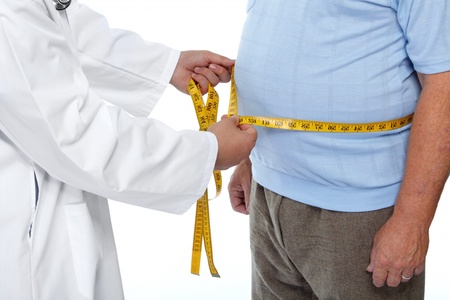Dieting affects males and females differently in young adulthood - but the variations disappear with age, according to a new study, which the University of Aberdeen Rowett Institute contributed to.
Researchers found that males on reduced calorie diets showed greater fat loss and improvements in blood sugar levels compared with females.
The findings suggest that oestrogen, one of the main female sex hormones, may play a role in determining the health benefits of dieting. Experts say this could help to identify those most likely to benefit from a restricted calorie diet.
Reducing calorie intake while maintaining levels of essential nutrients is linked to the prevention of conditions such as obesity, high blood pressure and type 2 diabetes, and increased life expectancy.
The University of Edinburgh-led research team looked at the impact of a reduced calorie diet on the health of both mice and humans.
The six-week study involved 96 mice whose daily calorie consumption was 30 per cent less than normal and 85 mice on a normal diet.
The team found that the reduced calorie diet lowered blood sugar by 22 per cent in young males but only 16 per cent in young females.
The effects on body fat were even more striking – males decreased fat mass by nearly 70 per cent but females lost no fat at all.
The study found young female mice resisted fat loss because, compared to males, they limited the breakdown of body fat, used less energy and had increased fat production after meals.
By contrast, when dieting began at older ages, there was no significant difference in fat loss between sexes. Female mice lost around half of their body fat – a similar level to males.
A small human weight loss study of 42 overweight or obese men and women confirmed the same age- and sex-based differences also occur in humans.
Across four weeks, men under 45-years-old lost more than 16 per cent of their body fat, while women in the same age group lost only 8 per cent, half as much as the men.
There was no difference in fat loss between males and females older than 45, with both sexes losing around 10 per cent of their body fat.
The human study was not originally designed to test the influence of age and sex on dieting but the researchers were able to analyse the data retrospectively to address this. A larger human study investigating the impact of age and sex is needed to confirm these findings, experts say.
The study is published in the journal eLife: https://doi.org/10.7554/eLife.88080. The international research team included scientists from the Universities of Edinburgh, Aberdeen, the Highlands and Islands and Glasgow and involved the Tri-Service General Hospital in Taiwan and the National Center for Global Health and Medicine in Tokyo.
Dr William Cawthorn, Senior Lecturer (Associate Professor) at the University of Edinburgh BHF Centre for Cardiovascular Science, who led the study, said: “Reduced-calorie diets have many health benefits and may promote healthy ageing. Some previous research suggested that the effectiveness of these diets may differ between males and females, but our study is the first to show that these sex differences largely disappear when dieting begins at older ages. This could help us to devise improved nutritional strategies to prevent diseases and promote healthy ageing.”
Professor Alexandra Johnstone from the Rowett Institute added: “This is an interesting collaborative study, where the Rowett Institute team were able to contribute the human studies data, to explore this novel hypothesis. We also look forward to future research together, to follow up on this paper, to further support studies on woman’s health.”


